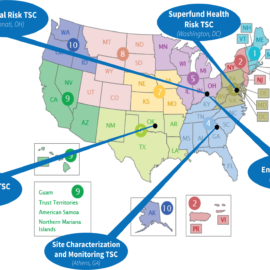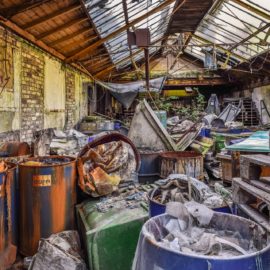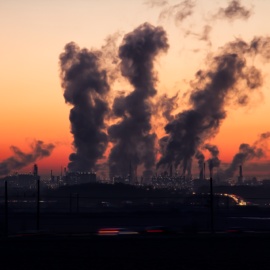
Cancer Alley and air pollution. Has the State shown racial bias in permitting the plants to pollute? The EPA is investigating.
The Environmental Protection Agency is investigating whether two state agencies discriminated against Black residents when they were involved in permitting decisions for two chemical plants and a grain terminal in St. John and St. James parishes. The probe centers on actions taken by the state Department of Environmental Quality and Health when DEQ considered permits during the past 2 years for the Denka Performance Elastomers plant, the proposed Formosa Plastics Sunshine plant and the proposed Greenfield Exports grain terminal, according to letters EPA sent to environmental groups announcing the start of its investigation. They come five months after EPA Administrator Michael Regan promised a crackdown on permitting decisions along Louisiana’s chemical corridor. Environmental Groups have long called that area “Cancer Alley,” due to federal studies that show higher concentrations of airborne pollutants and more instances of cancer in that region than elsewhere in the state.
nola.com
Other decisions will be reviewed as well and has systemic racism raised its head again? Has it ever left?
The investigations, which will also review permitting decisions for several other chemical plants, are in response to complaints filed by environmental groups about: The continued release to the air of carcinogenic chloroprene from the Denka plant, Emissions of cancer-causing ethylene oxide from other chemical plants near the Denka facility in St. John, The potential release of the smallest size of particulate matter, called PM2.5, at the proposed $400 million Greenfields grain terminal in Wallace and The potential release of particulate matter, nitrogen dioxide, volatile carbon monoxide, benzene, formaldehyde and ethylene oxide by Formosa Plastics’ proposed $9.4 billion Sunshine facility in St. James, which is owned by its FG LA LLC subsidiary. A DEQ spokesperson defended the agency’s handling of the chemical plant and grain facility permits Thursday. “We believe LDEQ’s permit process, prescribed by state law, is impartial and unbiased,” said DEQ Press Secretary Gregory Langley. “LDEQ handles all issues with a fair and equitable approach. LDEQ will work with EPA to resolve this matter.” “We take these concerns very seriously,” added Steven Russo, general counsel for the Louisiana Department of Health. “We have received the complaint in full from EPA and are reviewing it closely.”
The plants, or course, echoed the states responses.
However, Denka dismissed the investigations in a statement. “There are no widespread elevated cancer rates in St. John the Baptist Parish compared to the state average,” said Jim Harris, a company spokesperson. He pointed to Louisiana Tumor Registry results that he said bear that out. “The complaint (filed against Denka) claims local, state and federal officials have turned a blind eye to health impacts in the area, but in fact these agencies have been studying the situation long before these groups got involved – and choose to consider real science rather than sensational pseudo-studies,” Harris added.
Appearances say these statements are potentially false. The state’s evaluations have been spotty.
The complaints to EPA come from Earthjustice and the Lawyers’ Committee for Civil Rights Under Law, which are representing the Concerned Citizens of St. John and the Sierra Club in challenging the Denka and the Formosa Plastics facilities. Meanwhile, the Tulane Environmental Law Clinic is representing Stop the Wallace Grain Terminal, Inclusive Louisiana, RISE St. James and the Louisiana Bucket Brigade in their complaint involving the permitting of the grain terminal. The groups allege that the state’s environmental quality and health departments often racially discriminate against residents, resulting in predominantly Black residents being subject to disproportionate levels of air pollution. Several also charge the agencies with failing to review, renew or strengthen requirements of air permits issued to the facilities. They say the two departments fail to provide proper notice and comment opportunities for permits, and that they fails to fulfill the terms of federal grants that EPA gave the state to assess the causes of high cancer risk in the parishes. The Denka-related complaint also charged the health department with failing to provide predominantly Black St. John residents with information on health threats posed by air pollutants from Denka, including the risk to students attending the Fifth Ward Elementary School.
The effects of the plants pollution shows that something went wrong in either the permitting or the testing of the air quality, or both.
According to a 2014 National Air Toxics Assessment by EPA, the individual lifetime cancer risk from both chloroprene and ethylene oxide was at the rate of 2,000 cases per 1 million individuals at the census tract level near the Denka plant, the highest in the United States. Denka, in LaPlace, is the only manufacturer of chloroprene in the U.S. Ethylene oxide is being released from the Evonik Corp. facility in Reserve, and the Union Carbide Corp Taft/Star plant in St. Charles Parish, among others elsewhere in the state. Denka’s chloroprene emissions have dropped dramatically since the company agreed to install new equipment in 2018, but during the past year, the emission levels at several local monitoring sites have been greater than the EPA cancer risk level of 0.2 micrograms per cubic meter. The company is operating under a 2017 voluntary compliance agreement with DEQ, but the agreement did not reduce its official emission limits, a point of contention with the environmental groups. Denka has in the past asked EPA to reconsider its listing of chloroprene as a likely human carcinogen, based on a company-sponsored peer-reviewed study that concluded the chemical caused less cancer cases that EPA found.
There has been an initial review before this more formal process.
In letters to attorneys representing the environmental groups, EPA civil rights compliance office director Lillian Dorka said the complaints against the two agencies underwent a preliminary review, required under federal law, before the agency decided to proceed with investigations. The investigation of DEQ will review whether it administers its air pollution control program in ways that either have the intent or effect of subjecting individuals to racial discrimination, in violation of Title VI of the Civil Rights Act of 1964 and EPA’s own regulations. The probe will also focus on the state’s handling of Denka’s permits. The investigation of the health department will include a review into whether it subjects Black residents of the parish to discrimination by failing to provide them, other state agencies and other communities with information about health threats from Denka and other nearby sources of pollution. Dorka said the decision to begin the investigations does not mean the agency already has determined fault. Formosa Plastics and Greenfield Exports officials did not immediately respond to requests for comments on the EPA investigations.
When you sell your soul to the devil, things like this come back to bite you. There is a cost be being an oil and gas state.



